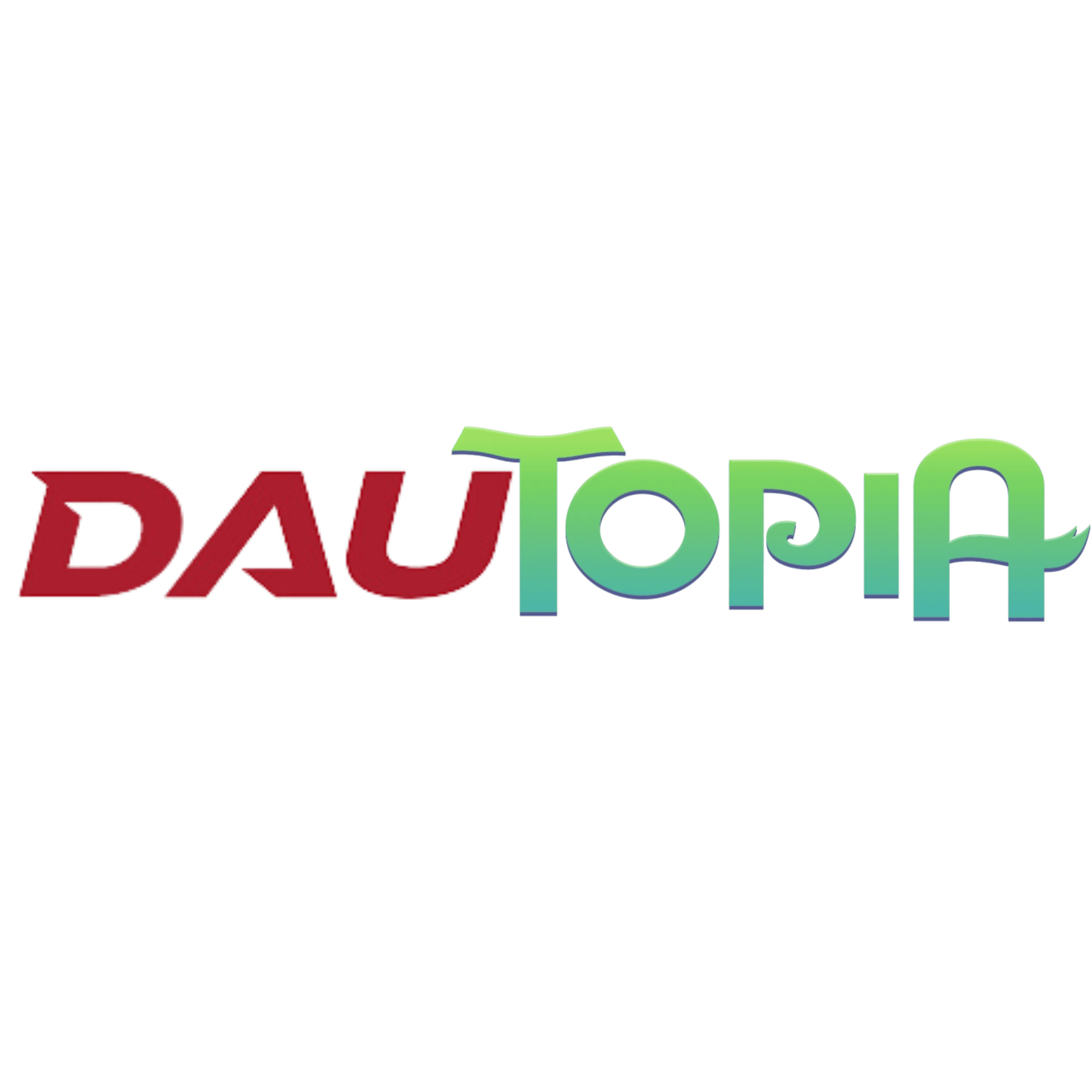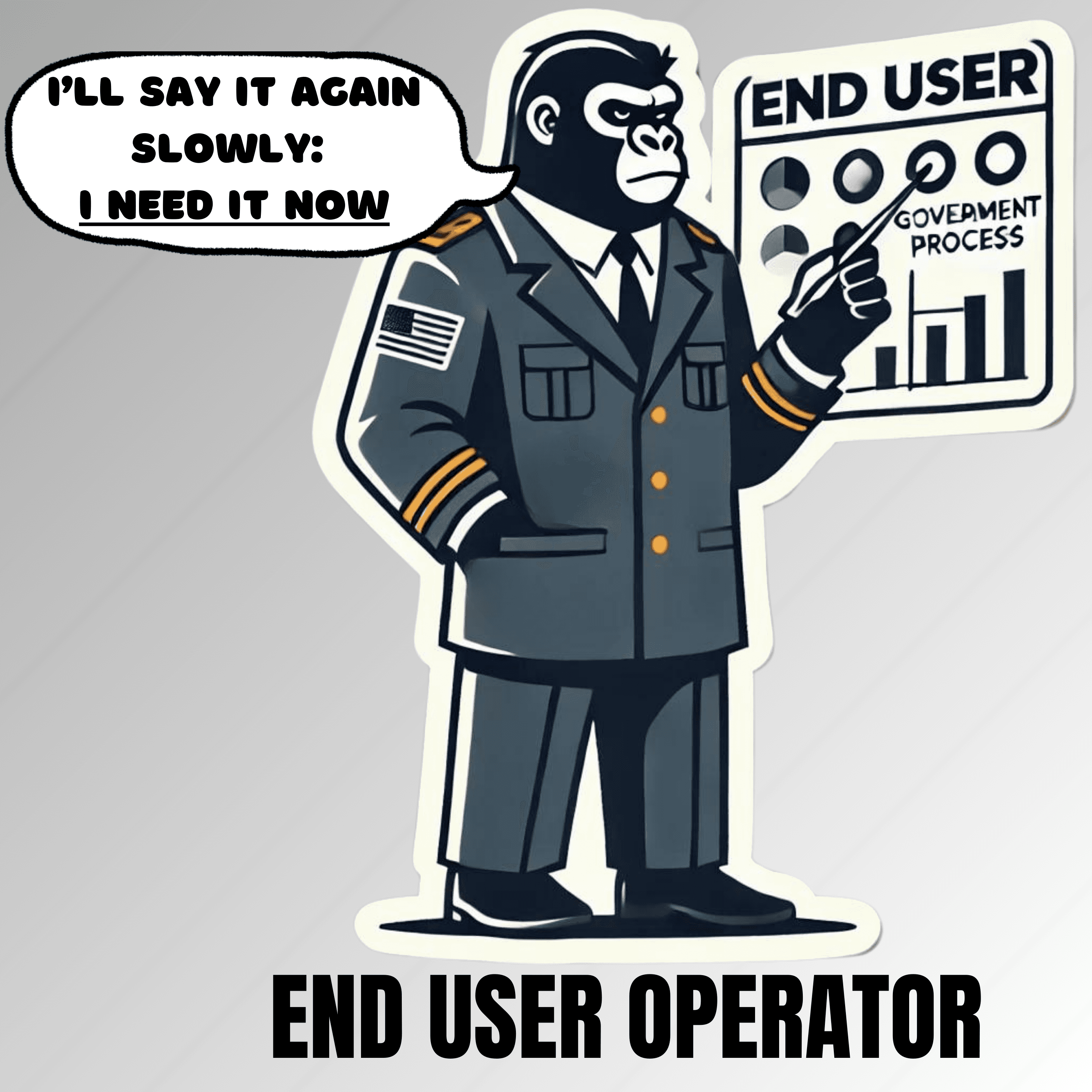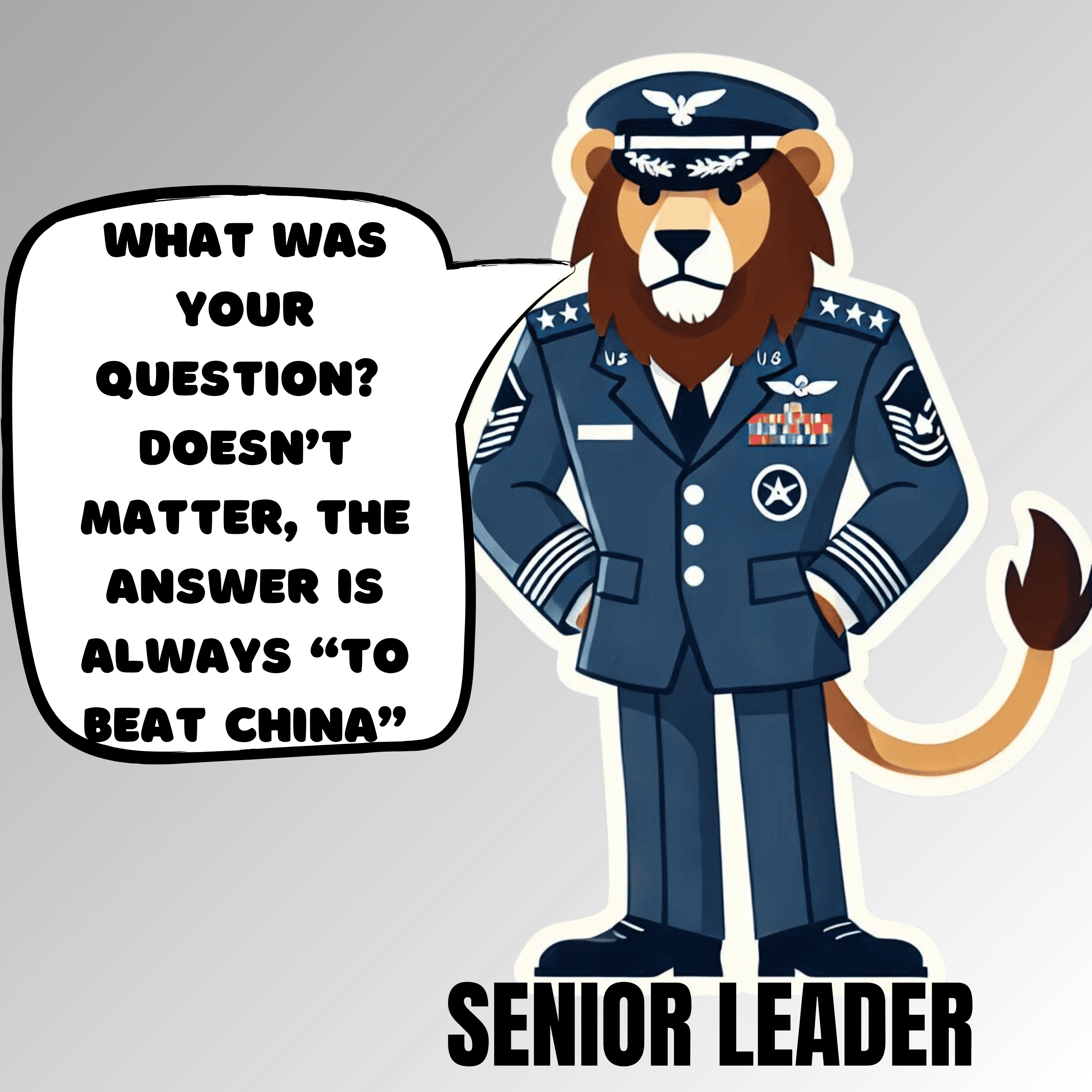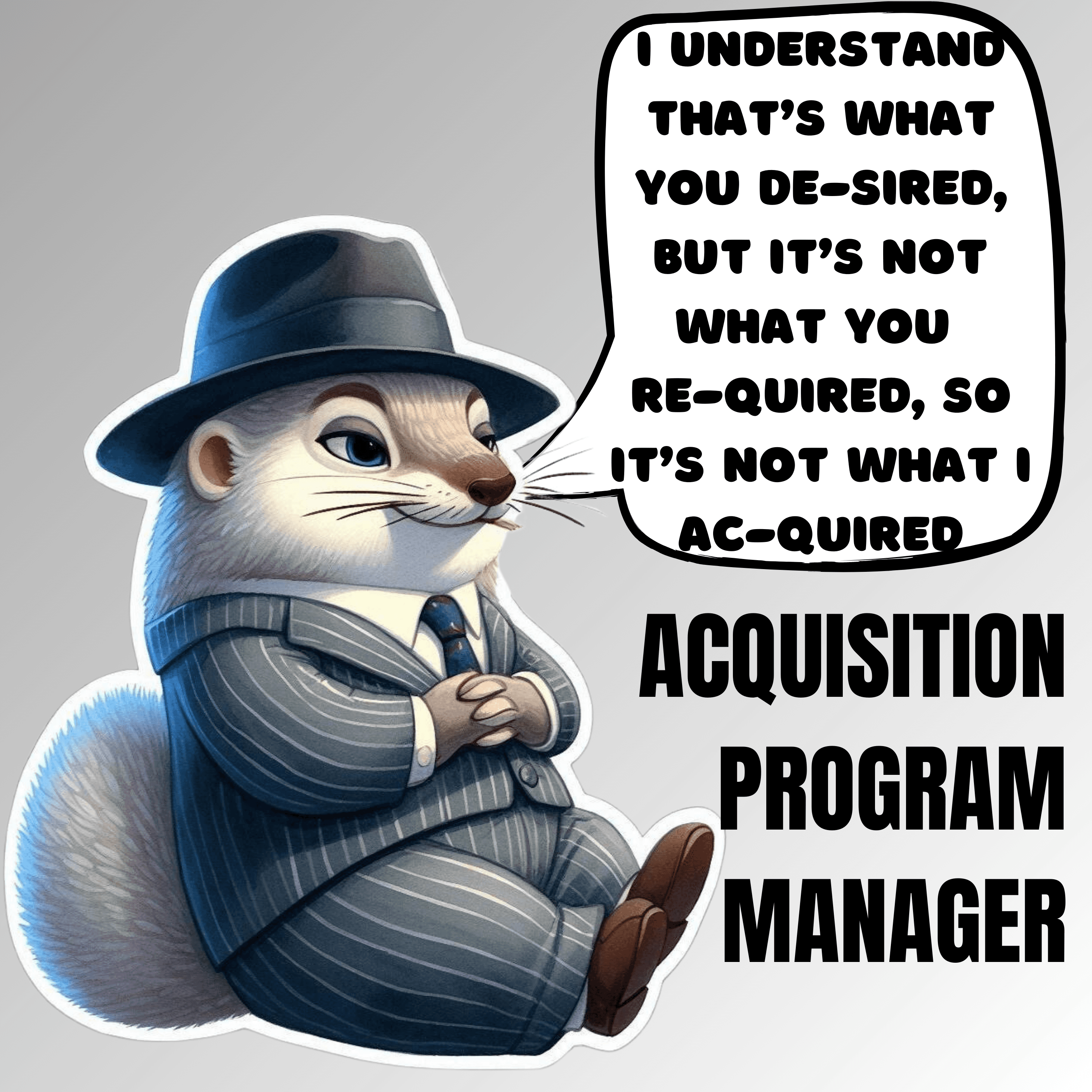Thought Piece
Sterotypes in Government Acquisition
What it we made Zootopia for DoD acquisition
Oct 7, 2024

When people asked me what I did at DARPA, I would often say "I'm a gorilla-to-dolphin translator".
I, a former "gorilla", or operational end-user learned the language and communications habits of "dolphins", or the scientists and engineers who primarily staffed DARPA and their contracted researchers.
In this context, gorilla was in no way a pejorative term, on the contrary, gorillas are some of the most intelligent animals, they use tools, have complex social hierarchies, and are fierce fighters. That said, they cannot speak too dolphins.
Dolphins, likewise are remarkably intelligent creatures, but they do not speak gorilla.
This fun and effective analogy for the relationship between the operational end-user community and the science and technology community which is charged with providing their next generation of capabilities always put the conversations in apt context.
Both communities were incredibly intelligent, both highly effective in their given domains, neither is very effective in the other's domain, and neither was particularly effective at communicating with the other.
Under this context, I facilitated hundreds of meetings and translated an equal or greater number of conversations.
This fun analogy prompted me to think about similar analogies, to put the broader innovation and acquisition community in a anthropomorphic context, thus the following blog and resulting stickers.

The End-User Operator "Gorilla"
First we have the operational gorilla, named such because Infantry and other combat arms professionals are often affectionately know to one another as "knuckle draggers".
Fair warning, if you are not a knuckle dragger by trade, I advise against using this term. This is a term of endearment among the community and often a term of derision when used by outsiders.
I said the social hierarchy was complex.
That said, some of the most important features of these operational creatures are:
they are typically impatient, they want a thing, and they need it now
they are typically strongly opinionated about their operational environment - this goes for just about every operational professional from Infantry to fighter pilots
they will tell you point blank if your thing wont work, no matter how newfangled it may be
you only have one or two chances to disappoint them, and they your thing will go in a closet, so don't over-promise and under-deliver
they are intelligent, most operational personnel are highly educated and intelligent, do not let the stereotype fool you, many of them have advanced and technical degrees, they CHOSE to sleep in the mud and/or risk life and limb for a living
they are typically meritocratic, so if you are talking to an operator in the context of "I need new X", they typically earned the right through merit to in that place telling you that thing, the less capable operators are seldom allowed to interact with other species, so take them seriously

The Research and Development "Dolphin"
highly intelligent and well--suited to their environment, which can itself be fairly hostile. Seldom do we discuss the life of a research scientist, these folks have great ideas and insights on how to drive forward the state of the technical art of operational capabilities. The processes for turning those ideas into reality is often similar to the experience of vendors trying to sell products and services to the government. These scientists, engineers, and technologists have to "sell" their ideas. They have to "sell" them to their leadership for funding, to industry to bid on the efforts, and then when they are successful they have to "sell" the new technology to end users and acquisition program managers to get their tech out of the lab.
That said, some of the most important features of these research creatures are:
they fell in love with science
they may not have context on how the science relates to the gorilla's operations
they tend to use a lot of jargon, terms of art, and words with latin roots
they are generally passionate about delivering the next generation of whatever it is they develop to whomever it is who might use it, after all, they could probably make a lot more money in the commercial world

The Senior Leader "Lion/ess"
The Lion Senior Leader is the king/queen) of the acquisition jungle. With regal authority and strategic vision, they oversee large-scale projects, ensuring that their teams stay on track and that goals are met. Like a lion leading its pride, they demand respect and command attention, knowing that the success of the acquisition depends on their leadership. what they don't often do is get into the details. Their's is the realm of vision, direction, "broad strokes", "wave caps", and "big-hand/little-map" strategy.
That said, some of the most important features of these strategic creatures are:
lions spend 20 hours per day sleeping, senior leaders spend 20 hours per day in meetings
they think big thoughts, say big words, and invent terms of art
when they do and say the above, people tend to listen and do
they are typically only in their present job for 24-36 months
the first 6 months and last 6 months of their tenure at any given job is typically spent orienting to their current environment or preparing for the next one

The Acquisition Program Manager Arctic Shrew
Cool, even cold at times, perhaps shrewd, but for good reason. Resources are scarce and there's a force to supply. PMs are typically driven by the conditions of their environment, and the acquisition ecosystem can be dog-eat-dog, with other programs looking to expand their territory (and funding) they are often on constant defense, not to mention the industry contractors who are looking to eat them. Surviving as an acquisition program manager is not the easiest job in the world, to do so they typically stick to first principals:
descriptive REQUIREMENTS, not desire-ments
best value is the best way to spend the government's money
figuring out what is the "best value" is often difficult
they're weary of wolves, foxes, vultures, and lost bunny rabbits
they can be very elusive if you are one of the above animals

The Middle Management Sloth
This persona does not fit a particular job title or career field, it is rather a category that cross-cuts all career fields. The "frozen middle" is the phenomenon in acquisition wherein slow, plodding functionaries methodically move paper from one side of the proverbial desk to the other in measured steps. Similar to the sloth, they are in motion, often out of reach from other member of the jungle; the roar of the lion, the snap of the wolf, even intimidating gorilla grunts fail to phase the sloth.
These folks get a bad rap, and some of them are legitimately little more than growth media for moss, but most are dedicated public servants who just want the process to progress properly.
Yes, lions come around roaring all the time.
Yes, irritated gorillas try to push them around.
Yes, wolves try to take a bite out of them.
But it's their job to keep the wheels of bureaucracy steadily turning, and if they jumped every time a senior leader decided it was time to make noise, well, the system would devolve into chaos.
Some of the most important features of these glacial creatures are:
usually there's a reason; for the paperwork, the process, the numerous hoops you have to jump through
usually the reason is someone like you, long before you, screwed something up so badly that they had to create paperwork and a process to prevent it from happening
people like you still find ways to screw it up, in spite of the paperwork and the processes
they are not phased by you, they were there before you, they will be there after you, and save for vary rare circumstances, they can wait you out
your best bet is to learn the process and figure out how to make the sloths move as fast as they can
going around the process only makes sloths go slower

The Small Business Concern Bunnies
There's so many of them, though not as many as there used to be. Hopping around from place to place, nibbling on the grass. Trying to find the elusive arctic shrews, confounded by the sloths, wear and leery of the wolves. Small business are a vital part of the habitat. Most of them really hope to one day be wolves, but in reality few if any make such a transformation. More often they hop around, subsisting on the flora that is unsuitable for wolf consumption. Eventually, the healthiest ones get eaten, by wolves.
It's the circle of life.
Some of the most important features of these skittish creatures are:
they can use all the help they can get, it really is a dog eat dog world out there, and they're smaller than dogs
many of them are not fully cognizant of the environment in which they live
a little bit can go a long way, these are not large ravenous beasts, so throw them some carrots now and then
they can be skittish, many of them have had less than ideal interactions with other members of the animal community, and become cautious as a result

The Large Business Prime Wolves
Small businesses, sloths, and shrews often deride the wolves. Even the lions, gorillas and dolphins join in from time to time, they are a convenient scapegoat for the ails of the ecosystem. Not enough SBC bunnies? the wolves must be eating them. Arctic shrews wont talk to anyone anymore? the wolves must have chased them into hiding. Lions in a sour mood? the wolves must be harassing them.
But let's be frank, the ecosystem needs the wolves. What do you think SBCs plan to do when they grow up? Either be a wolf or get eaten (bought) by one, that's the exit plan.
They get a bad rap because they are incredibly effective hunters. They travel and hunt in packs, many to a group, with sheer resource capacity they can overwhelm and take down large prey.
Some things to know about these aggressive animals:
it's a dog eat dog world, and they plan to do the eating
sometimes wolf packs hunt together, sometimes they conflict, the choice often comes down the likelihood of being able to take down the game
they're often fairly patient, willing to stalk game over long periods of time and over long distances

The Cyber Security "Cheetah"
Cheetahs typically lay in the shade most of the day, elusive, quiet, and ever ready to pounce if you open an email from a Prince who wants to send you gold.
Most people will go their whole careers without seeing one in person, perhaps over the phone, or via a remote access terminal. When you do see them, much like the elusive Cheetah, they have often have a general "why are you wasting my time" demeanor. Why? it's well-earned, as their profession is centers are around addressing crises that are not their fault, but always their problem.
Some common characteristics of these elusive animals:
they will not hesitate to pounce on you if you do something stupid on their network
they tend to keep to their kind, they have their own watering holes and customs
they have incredibly fast fingers, on keyboards, and they only work in the command line if they can help it